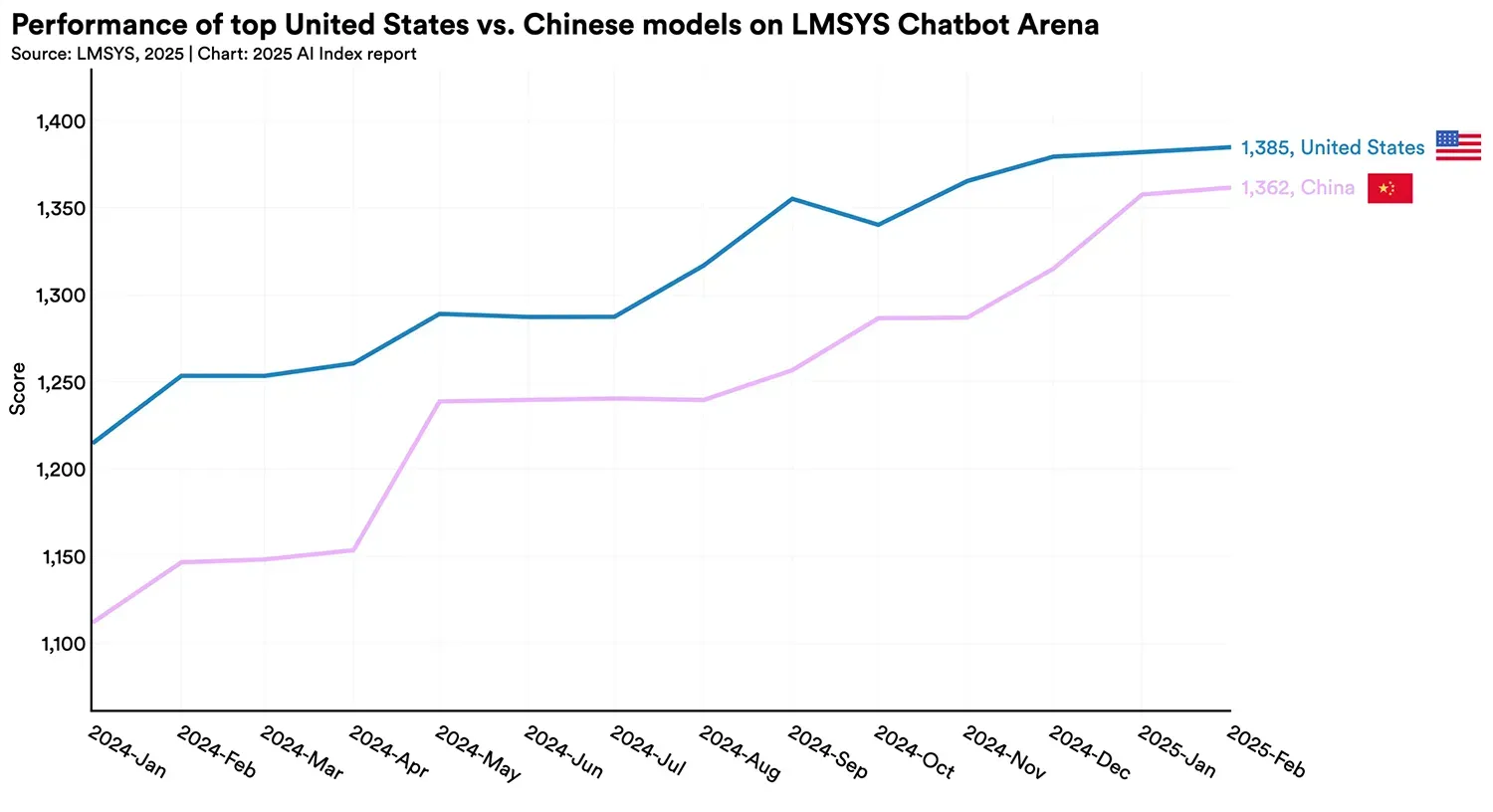AI’s Billion-Dollar Surge Hides a Bigger Problem

AI isn’t taking your job, yet. But it is taking your lunch, your budget, and maybe your economic edge. And the 2025 Stanford AI Index just told us how.
Private AI investment soared to $252.3B in 2024, but here’s the real headline: the U.S. outspent China by more than 10X in AI and 25X in generative AI, but China is catching up. Meanwhile, developing countries remain stuck on the sidelines, often lacking the electricity to plug into this revolution.
Industry now builds 90% of AI models, pushing academia to the margins as performance gaps shrink and model scale explodes. But let’s not cheer too soon; most AI still fails basic reasoning tests, and only 4% of occupations use AI across most tasks. Amid the hype, real productivity gains remain uneven.
Other important insights:
1. AI Surpasses the Turing Test: The Turing Test is no longer seen as a meaningful benchmark. AI systems have become so advanced that they consistently outperform human-level responses in natural language interactions.
2. AI Drives Scientific Breakthroughs: AI contributed to Nobel Prize-winning work in physics and chemistry in 2024. It is now central to discovery in fields like drug design, quantum physics, and climate modelling.
3. Massive Growth in AI Adoption: AI usage exploded across sectors—from corporate workflows to personal productivity. Millions now use AI daily, both at work and at home.
4. Inference Costs Are Falling—Fast: New estimates show that the cost of running powerful AI models (inference) has dropped significantly, making it cheaper to deploy large-scale AI applications.
5. Open vs. Closed Models: The Divide Deepens: While closed models from companies like OpenAI and Anthropic dominate performance benchmarks, open-source models are catching up quickly in accessibility and customization.
6. Global Policy Momentum Builds: Over 100 new AI-related policies and regulations were proposed or passed globally in 2024 alone, with countries scrambling to define rights, risks, and responsibilities.
7. China and the U.S. Remain in an AI Arms Race: China leads in patents and publications; the U.S. leads in foundation model development. Geopolitical tensions continue to shape the AI race.
8. Corporate Responsible AI Still Lags: Despite public pledges, only a minority of top global firms have implemented strong responsible AI governance structures, according to new corporate disclosure data.
9. AI Hallucinations Remain a Critical Risk: Despite improvements, most large language models still produce false or misleading information at rates that are unacceptable for mission-critical use cases.
10. AI Talent Demand Surges: Demand for AI talent has never been higher, with jobs in AI engineering, policy, and ethics growing rapidly—especially for roles blending technical and strategic skills.
We’re not witnessing the future. We’re engineering it—one billion-dollar bet, one unstable model, one policy blindspot at a time. As AI changes what it means to be competent, how should your organization rethink talent, trust, and truth in the age of machine performance?
Read the full article on Stanford University Human-Centered Ai.
----
💡 We're entering a world where intelligence is synthetic, reality is augmented, and the rules are being rewritten in front of our eyes.
Staying up-to-date in a fast-changing world is vital. That is why I have launched Futurwise; a personalized AI platform that transforms information chaos into strategic clarity. With one click, users can bookmark and summarize any article, report, or video in seconds, tailored to their tone, interests, and language. Visit Futurwise.com to get started for free!






